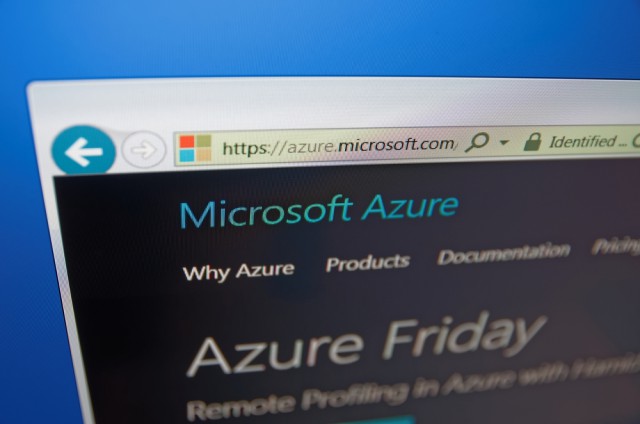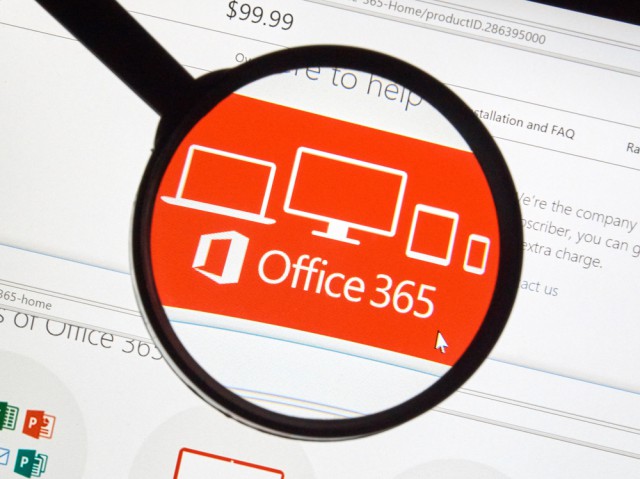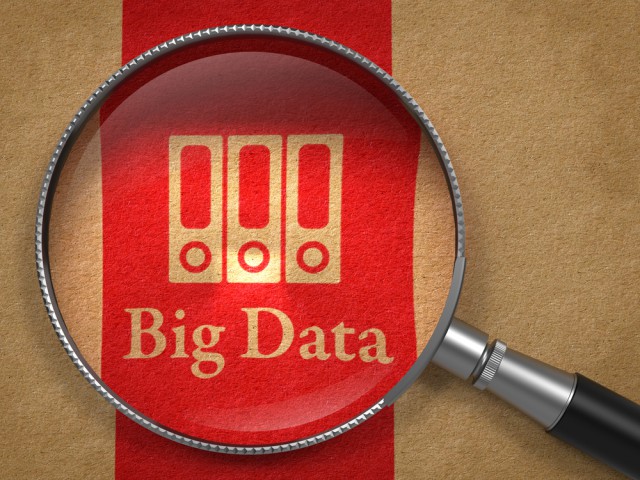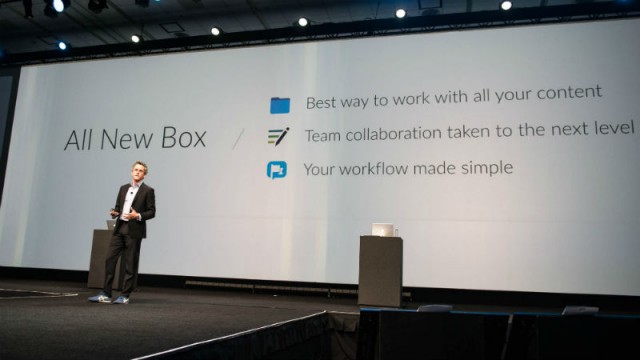
BT to offer customers Microsoft Azure services
British telecommunications company BT has announced a new offering, expanding the cloud choice for its customers. BT Computer for Microsoft Azure allows BT’s customers to order Microsoft Azure together with BT’s cloud.
With the new offering, according to BT, customers will be able to create hybrid cloud infrastructure with a single service wrap, on a single bill.

Adaptiva launches serverless software distribution from the Azure cloud
Deploying software and updates to computers across a global enterprise from the cloud can be slow and expensive using traditional methods.
Systems management specialist Adaptiva is launching OneSite 6.0, a serverless option for distributing software from the cloud using Microsoft System Center Configuration (ConfigMgr) and Microsoft Azure.

Oracle buys cloud security company Palerra
Oracle has announced that it will purchase the cloud access security broker (CASB) Palerra, making this the company's eight acquisition in 2016.
The deal was announced at the beginning of Oracle OpenWorld in San Francisco and the amount which the company is paying for Palerra has yet to be disclosed. Oracle made the decision to purchase the company for its Loric software product as it "protects and assures compliance of applications, workloads and sensitive data stored across cloud services".

Duo launches single sign on for easy, secure cloud access
Businesses are increasingly recognizing that passwords are no longer an adequate way of protecting systems. But users still need a means of access that is easy to use, secure and doesn't get in the way.
Cloud-based access provider Duo Security is today announcing that it's combined its flagship two-factor authentication and device insight with single sign-on (SSO) capabilities to create a trusted access platform.

Salesforce launches Einstein AI platform
Salesforce has announced the launch of its new Einstein artificial intelligence (AI) platform that has already been implemented into a number of the company's existing cloud services including Sales Cloud, Service Cloud, Marketing Cloud, Analytics Cloud, App Cloud, Commerce Cloud, Community Cloud and IoT Cloud.
The company has also announced that it has formed a new unit called Salesforce Research that will be exploring deep learning, natural language processing and computer vision. The new unit's aim is to improve Salesforce products and it will be led by the company's chief scientist Richard Socher, who is responsible for co-founding the A.I. startup MetaMind which Salesforce acquired earlier this year.

Kentik launches network performance monitoring for the cloud era
Migrating systems to the cloud leads to a shift in network traffic patterns that can present a performance challenge for businesses.
Network analytics company Kentik is launching its new Network Performance Monitoring (NPM) aimed at meeting the needs of modern, digital businesses.

The best of both worlds regarding storage and the cloud
It might shock you to hear that managing data has never been more difficult than it is today. Data is growing at the speed of light, while IT budgets are shrinking at a similar pace. All of this growth and change is forcing administrators to find more relevant ways to successfully manage and store data. This is no easy task, as there are many regulatory constraints with respect to data retention, and the business value of the data needs to be considered as well.
Those within the IT world likely remember (with fondness) the hierarchical storage management systems (HSM), which have traditionally played a key role in the information lifecycle management (ILM). Though this was once a reliable and effective way to manage company data, gone are the days when businesses can put full confidence in such a method. The truth of the matter is that things have become much more complicated.

IBM Cloud adds mobile security service
When it comes to corporate IT security, one of the biggest pain points is the mobile device. With almost every employee having one, and many bringing their own, the cyber-attack surface increases dramatically, putting corporate data at huge amounts of risk. Now, IBM is stepping into the game with a service of its own, which aims to protects mobile devices, via IBM Cloud.
The mobile-security-as-a-service, called IBM MaaS360, aims to help IBM’s clients address local data protection standards. It is currently in operation in the US, Germany and Singapore, with France and India already in the works. They will be followed by an "additional eight countries" planned for the next two years. IBM didn’t go into further detail, but we’re hoping the UK will be among them.

Canonical and Western Digital launch Ubuntu Linux 'Nextcloud Box' powered by Raspberry Pi
Cloud storage is amazingly convenient. Unfortunately, the best part of the cloud can also be the worst. You see, having your files stored on someone else's severs and accessing them over the internet opens you to focused hacking, and potentially, incompetence by the cloud storage company too. As a way to have the best of both worlds, some folks will set up net-connected local storage so they can manage their own 'cloud'.
Today, Canonical and Western Digital (WDLabs) unveil an Ubuntu Core Linux-based cloud storage and 'Internet of Things' device called 'Nextcloud Box'. The box leverages the open source Nextcloud service and can be powered by a Raspberry Pi 2, Raspberry Pi 3, or oDroid C2. Will it be easier to use and manage than closed source solutions?

Public cloud services market to reach $208.6 billion in 2016
Both businesses and consumers have embraced the cloud and Gartner projects that the worldwide public cloud services market will grow by 17.2 percent by the end of this year.
In 2015, the public cloud services market was worth $178 billion. Gartner's projection that it will grow by 17.2 percent in 2016 will bring that number up to $208.6 billion, which is a testament to the way in which the cloud has matured and won over businesses and consumers.

Microsoft Azure Service Fabric coming to Linux
Microsoft has announced that it will be bringing Azure Service Fabric, which allows developers to run and manage microservices, to Linux.
Azure's CTO Mark Russinovich is very enthusiastic about microservices, which the company has been using internally for seven years. Russinovich believes that the vast majority of apps even including enterprise apps will soon be built using this technology.

Microsoft adds guest access to Office 365
Microsoft keeps adding new features to its Office 365 suite, and now it has made easier for people outside a group to collaborate on files. A new feature, for Office 365 groups, allows people who aren't staff members, or members of a particular group, to join in and collaborate.
Group owners can now use the web version of Outlook to invite non-staff members in.

New solution prevents loss and corruption in big data environments
The pressure to move towards using big data can often lead to management practices lagging behind. While storage is managed often data flows aren't, which leads to breakdowns and corruption of the data.
The bigger and more complex the data, the greater the problem becomes. To address this, San Francisco-based StreamSets is launching its Dataflow Performance Manager (DPM), a solution that makes it possible to manage the operations of a company's end-to-end dataflows within a single pane.

Google wants to buy cloud software company Apigee
Google has announced that it will acquire the cloud software company Apigee Corp in a move that will likely help boost its own cloud offerings.
The deal is valued at around $625 million and Google has agreed to pay Apigee shareholders $17.40 for each share of the company's stock which amounts to a 6.5 percent premium on its closing price the day before the announcement.

Box users will soon be able to edit Google documents
During BoxWorks 2016, the annual Box conference taking place in San Francisco, the enterprise content platform announced it is teaming up with Google to make working and collaborating in the cloud simpler and easier.
Box will become third-party content repository for Google Docs, Google Sheets and Google Slides, it was unveiled during the conference. Once the new offering is available, it will enable Box users to create and edit Google documents directly from its cloud services.
